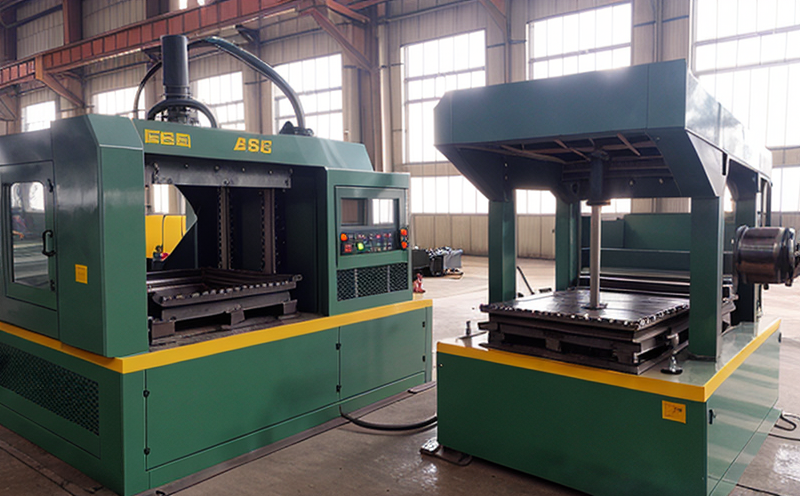ASTM E384 Microhardness Testing of Forged Steels
The ASTM E384 standard specifies procedures for performing microhardness tests on forged steels. This process is crucial in industrial manufacturing and processing, particularly when assessing the mechanical properties of materials used in critical applications such as aerospace, automotive, and heavy machinery.
Microhardness testing provides a measure of the hardness of a material at a very small scale, which can help identify variations within a forging or stamping process. This is especially important for quality assurance and compliance with industry standards. By measuring microhardness, manufacturers ensure that their products meet stringent requirements set by international standards like ISO 6508-2.
The testing procedure involves using a diamond indenter to apply a specific load to the surface of the specimen. The depth of indentation is measured, and from this measurement, the hardness value is calculated. This process can be performed on various types of specimens including flat plates, round bars, and complex shapes.
Specimen preparation plays a critical role in obtaining accurate microhardness readings. Proper sample preparation ensures that the test results are representative of the material's actual properties. For forgings, this may involve machining the specimen to ensure it meets the required dimensions for testing. The surface finish must also be appropriate to avoid introducing errors due to irregularities.
Once prepared, the specimens are tested using a microhardness tester equipped with a suitable indenter and load stage. The test setup allows for precise control over the applied force and indentation depth. Various indenter types can be used depending on the specific requirements of the test, such as diamond cones or spheres.
The results from these tests are then analyzed to ensure compliance with relevant standards. Compliance with ASTM E384 is critical for manufacturers who need to demonstrate that their products meet international quality benchmarks. This testing method also aids in process control and optimization by providing detailed insights into the microstructure of the material.
Microhardness testing helps identify any inconsistencies or variations within a batch of forgings, which could indicate issues during the manufacturing process. By using this test, manufacturers can ensure that their products are not only meeting but exceeding the required standards and specifications.
Eurolab Advantages
- Comprehensive Testing Capabilities: Eurolab offers a full range of testing services tailored to meet the needs of industrial manufacturing and processing, including forging, stamping, and forming processes.
- Advanced Equipment: Our state-of-the-art microhardness testers ensure accurate and reliable results, providing data that is critical for quality assurance.
- Experienced Professionals: Eurolab’s team comprises highly skilled technicians and engineers who are experts in the latest testing methodologies.
Customer Impact and Satisfaction
By leveraging ASTM E384 microhardness testing, our customers benefit from improved product quality and enhanced compliance with international standards. This translates into greater customer satisfaction as products meet or exceed specifications, reducing the risk of non-conformity issues.
- Enhanced Product Quality: Accurate microhardness testing ensures that forgings meet stringent quality criteria, leading to higher product reliability and durability.
- Improved Process Control: Regular testing allows for continuous improvement in manufacturing processes, ensuring consistent quality across batches.
International Acceptance and Recognition
The ASTM E384 standard is widely recognized and accepted by international standards organizations such as ISO. This ensures that the results of microhardness testing are universally understood and comparable across different regions.
- Global Consistency: Compliance with ASTM E384 means that the test results are consistent and reliable, regardless of where they are conducted.
- Trust and Confidence: International acceptance fosters trust among clients and stakeholders, enhancing reputation and credibility for our customers.





